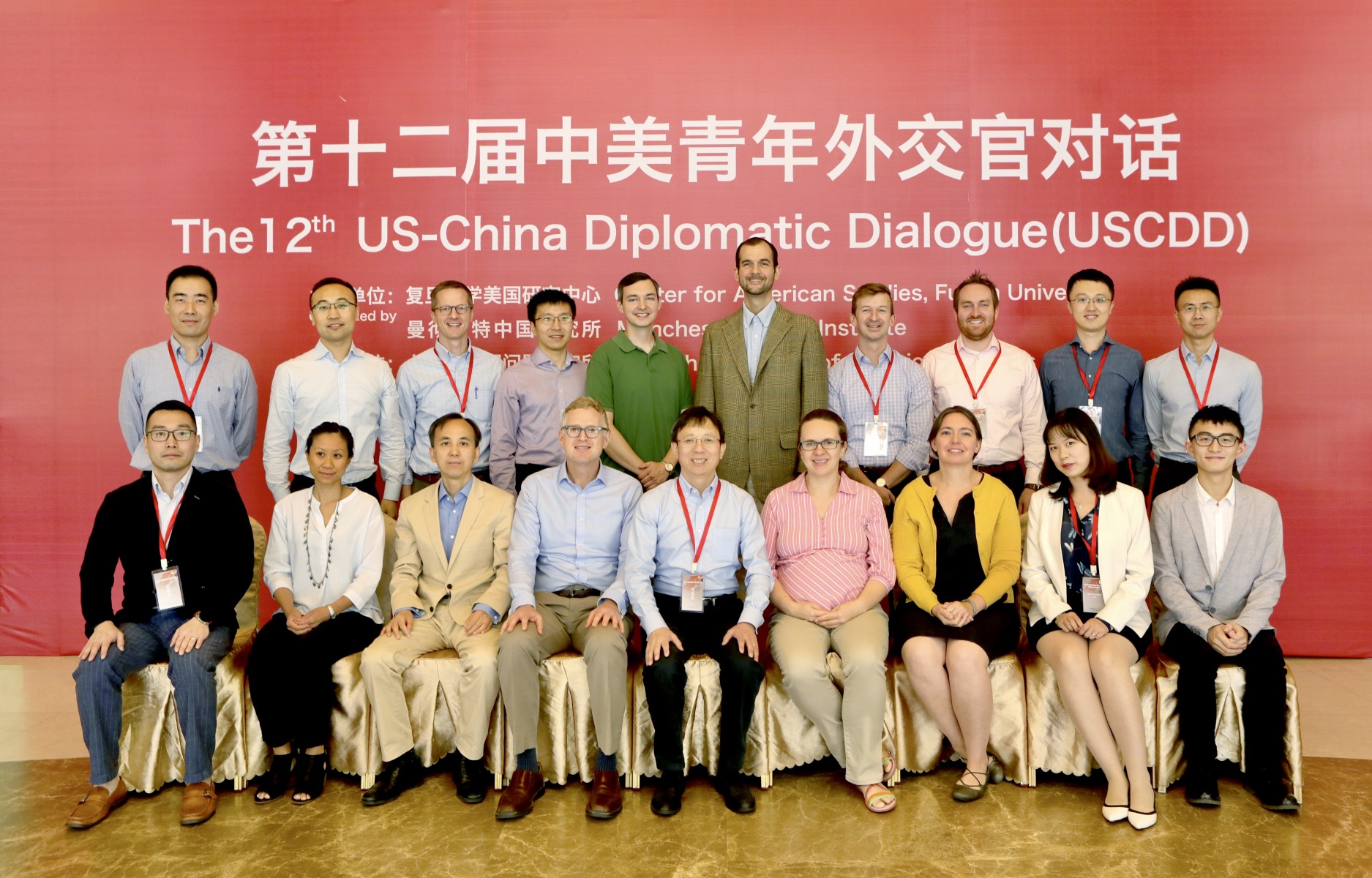University expert co-hosts meeting of American and Chinese diplomats
A group of Chinese and American diplomats have met in the remote mountains of China's Anhui province for the 12th annual US-China Diplomatic Dialogue, co-hosted by Professor Peter Gries of the 91直播 China Institute.
The meeting involved formal discussions of the US-China trade dispute, security competition in the South China Sea, and the future of US-China relations. It also included informal activities like hiking in the Mingtang Mountains and touring local factories and farms, giving the Chinese and American diplomats ample opportunity to get to know one another better, and further discuss bilateral issues.
Yuexi, the town where the meeting took place, is the hometown of cohost Wu Xinbo, who Directs both the Shanghai and Fudan University Institutes of American Studies.
Professor Peter Gries established the US-China Diplomatic Dialogue in 2007 to generate mutual trust and improve U.S.-China relations. It does this by creating an informal retreat-like atmosphere in which participating diplomats can establish personal relationships while frankly exchanging their views on bilateral relations.
The Americans attendees came from the US Embassy in Beijing, and the five US Consulates scattered around China. The Chinese diplomats all came from the Ministry of Foreign Affairs in Beijing.
Americans and Chinese people grow up with very different ideologies and worldviews - in such a context, they can easily project their worst fears onto one another, increasing the likelihood of conflict. Professor Gries created the dialogue in the hopes that it would help each side better understand the others’ views, lessening the likelihood that misperceptions and fear would contribute to war.
Because of the working-level, informal, and intimate nature of the US-China Diplomatic Dialogue, it also allows young Chinese and American diplomats to form personal relationships that they can call upon in their future careers.
In my view, US-China relations today are at the lowest point they have been in the 30 years since Tiananmen. I was thrilled that while some of our formal discussions were tense, diplomats on both sides embraced the optimistic spirit of the Dialogue. I am also grateful to work at a University that values social responsibility and programs like our Dialogue that seek to make a difference in our rapidly changing world.
?The Chinese diplomats were Liu Jun (刘军, Counsellor, Department of North American Affairs), Shen Jie (沈杰, First Secretary, Information Department), Chi Wenyu (匙文宇, Second Secretary, Policy Planning), Zhou Yang (周洋, Second Secretary, Department of North American Affairs), Zhang Junjie (张俊杰, Third Secretary, Department of North American Affairs, Zhang Zhenliang (张振亮, Third Secretary, General Office), Li Xue (李雪, Attaché, Department of North American Affairs), Zhu Shuai (朱帅, Attaché, Personnel Department), and Xu Lang (徐浪, Department of North American Affairs).
The American diplomats were Pauline Anderson (Public Affairs, U.S. Embassy), Michael Brewer (Economic Officer, US CG in Shanghai), Andrew Duff (Economic Officer, U.S. CG in Guangzhou), Natasha Grokh (Economic Officer, U.S. CG in Shenyang), Scott Linton (Political Officer, U.S. CG in Shanghai), Mimi Lu (Trade Officer, Economic Section,), Tom Niblock (Political Officer, U.S. Embassy), and Chris Rains (Political Officer, U.S. CG in Chengdu).
